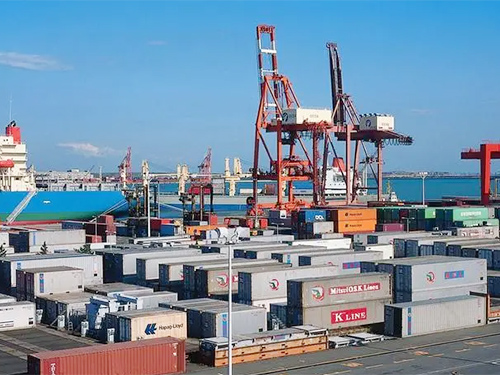
In the global business environment, foreign trade has become an important way for many enterprises to expand their markets and achieve growth. However, with this comes a variety of risk challenges that can arise from factors such as unstable political environments, economic fluctuations, trade barriers, contract disputes, and natural disasters. In this highly competitive and unpredictable environment, the ability to be sensitive to and respond to foreign trade risks is particularly critical.
The importance of foreign trade risk awareness is like sailing in a dangerous sea, only by clearly recognizing the wind and waves and reefs that may be encountered, can we be prepared, grasp the direction, and ensure the safety of the ship. Therefore, it is important for enterprises to have a thorough understanding of various potential risks and learn effective risk management strategies.
Classification and Overview of foreign trade risks
1. Transaction risk
● Market risk: Market risk refers to the risk of sales falling short of expectations and price fluctuations due to market supply and demand relations, policy changes, competitive situation and other factors. In foreign trade transactions, enterprises may face declining market demand and intensifying competition, which will affect product sales and profits.
● Credit risk: Credit risk refers to the risk that the buyer or partner fails to fulfill the contractual obligations on time, resulting in the failure to collect the payment on time or the failure to receive the payment. In foreign trade transactions, due to the buyer's poor credit or insufficient payment ability, it may lead to problems such as default on the payment for goods, and affect the operation and capital flow of the enterprise.
● Exchange rate risk: Exchange rate risk refers to the change in currency value due to exchange rate fluctuations, which affects the earnings and costs of enterprises in foreign exchange transactions. In transnational trade, enterprises may face currency exchange risks due to exchange rate fluctuations, which increases transaction costs and uncertainties.
2. Logistics risk
In foreign trade transactions, logistics is also one of the important risks faced by enterprises. Logistics risks include all kinds of unforeseen problems that may occur during the transportation, storage and handling of goods, which may affect the safety, quality and timely arrival of goods, thus causing damage to the operation and reputation of enterprises.
1. Transportation risk: Transportation risk refers to the unexpected events that may occur during the transportation of goods, such as traffic accidents, natural disasters, and vehicle failures, which may lead to the delay, loss or damage of goods. Businesses need to choose reliable transportation methods and partners, and purchase appropriate cargo insurance to reduce transportation risks.
2. Storage risk: Storage risk refers to the loss or risk that the goods may suffer in the storage process, including fire, theft, damp goods, storage equipment failure, etc. Enterprises need to choose safe and reliable storage facilities and take effective storage management measures to reduce storage risks.
3. Cargo damage risk: Cargo damage risk refers to the damage that may occur to the goods during transportation and storage, such as improper packaging, careless handling, and improper temperature and humidity control. Enterprises need to strengthen the quality control of goods packaging, select packaging materials that meet transportation requirements, and strengthen supervision during transportation and warehousing to reduce the risk of damage to goods.
3. Legal risks
In foreign trade transactions, legal risk is an important aspect that enterprises cannot ignore, involving contract performance, intellectual property protection, anti-dumping and many other aspects. Non-compliant operations may lead to serious consequences such as contract disputes, intellectual property rights infringement or anti-dumping investigations, so enterprises need to pay full attention to legal risks and take effective measures to prevent and resolve them.
● Contract risk: In foreign trade transactions, the contract is a legal document between the two parties to agree on the rights and obligations, involving the transaction conditions, product specifications, price terms and other important content. Due to cultural differences, language barriers and other factors, there may be ambiguity or imperfection in the interpretation of the contract, which may lead to the occurrence of contract disputes. Therefore, enterprises should carefully consider the terms when signing contracts, and avoid blindly accepting unclear or unfair terms.
● Intellectual property risk: Intellectual property involves trademarks, patents, Copyrights and other aspects, which is the core competitiveness and value of enterprises. In foreign trade transactions, there are risks such as infringement and counterfeiting, which may lead to the infringement or dispute of intellectual property rights of enterprises. Therefore, enterprises should strengthen the awareness of intellectual property protection when carrying out foreign trade activities, properly protect their own intellectual property rights, and avoid infringing others' intellectual property rights.
● Anti-dumping risk: anti-dumping is a kind of trade protection measures taken by countries to protect their own industries, and enterprises may face anti-dumping investigations and penalties if suspected of dumping. In foreign trade transactions, enterprises should carefully evaluate product pricing strategies, avoid dumping allegations caused by excessively low prices, and strengthen the understanding of international trade regulations and anti-dumping measures to do a good job in compliance.


Friendly Links: